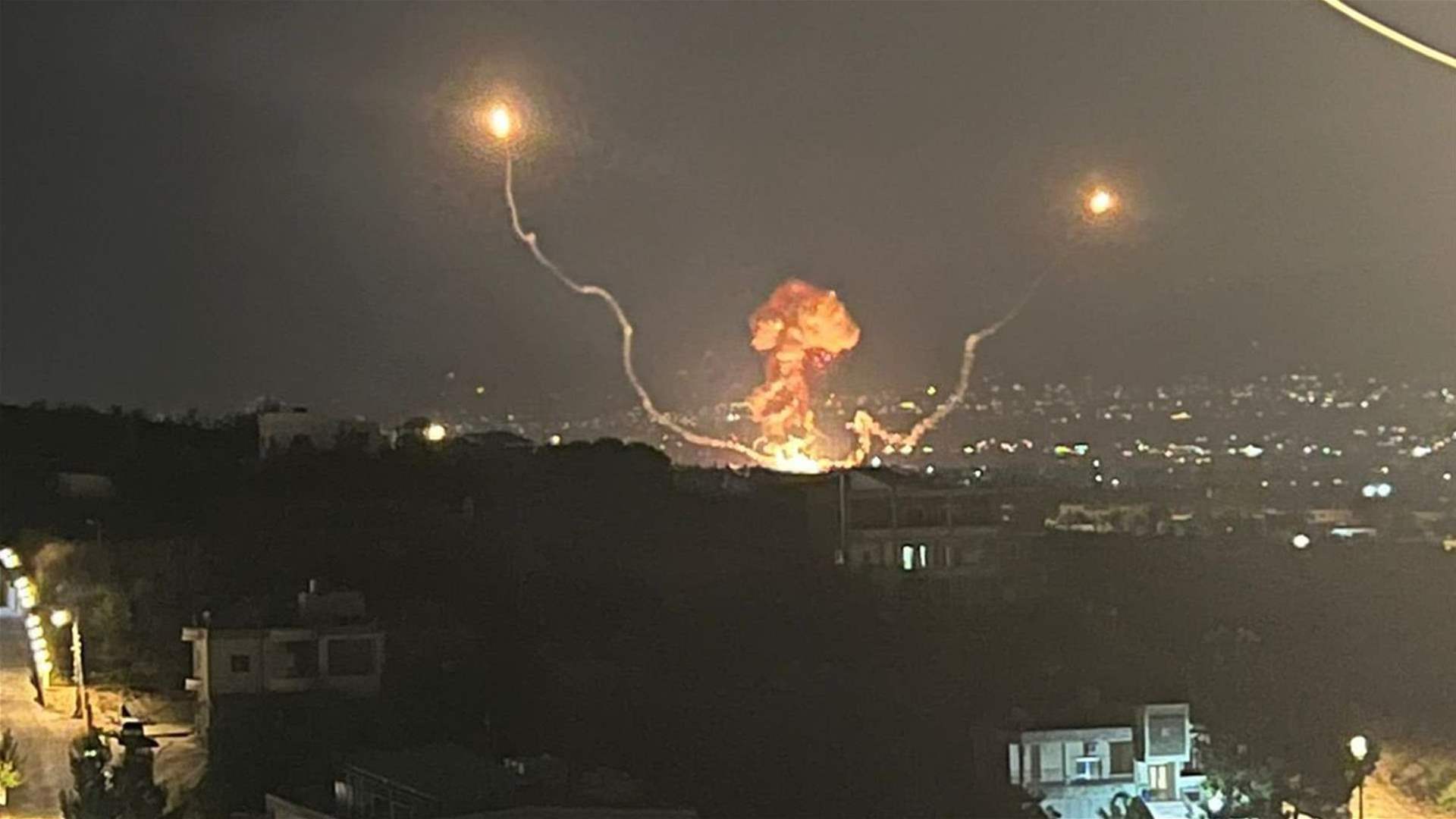Israeli warplanes conducted a series of raids in the Bekaa governorate in the late hours of Tuesday midnight. Airstrikes targeted the areas of Nabi Chiit, Bouday, Tarya, Al-Nasrieh, with several injuries so far reported and the final toll hitherto unconfirmed.
It is the second day in a row that Israeli raids target Bekaa, as Monday also witnessed a series of strikes, particularly on the outskirts of the town of Temnine al-Tahta in the Bekaa valley and the towns of Nabi Chiit and Saraain.
According to the Ministry of Public Health, the final toll of Monday’s raids included 11 injured persons, all of whom were treated in an emergency capacity.
Earlier yesterday, Israeli strikes targeted the town of al-Khiyam in the Nabatieh governorate, leading to the injury of one person, who was then treated for his wounds in the emergency department of Marjaayoun Governmental Hospital.
Expansion Amidst Failed Ceasefire Negotiations
The strikes represent a resumption of Israel’s expansion of the geographical scope of their operations across Lebanon, with many alluding that such expansion is meant to trigger a response from Hezbollah and, accordingly, a wider conflict.
A raid last Saturday killed ten individuals, including a woman and her two children, and wounded five others, two of whom became in a critical condition.
Concurrently, ceasefire efforts have notably intensified throughout the last month, with Lebanon hosting three envoys in the span of 48 hours last week, while international sanctions and bilateral relationship cuts vis-à-vis Israel increase by nations around the world.
Israel has repeatedly undermined ceasefire efforts by committing large operations in Gaza, Lebanon and other countries.
Hezbollah, on its part, has made it clear that if a ceasefire in Gaza is reached, the party intends on stopping its operations, as the Lebanese front was only meant as a support endeavor to resistance efforts in Gaza.
The same cannot be assumed on the Israeli side, however, with authorities and prominent politicians repeatedly calling for “levelling” Beirut and invading Lebanon among many other calls, and the development of a new set of considerations on the northern front.
Negotiations at an Impasse
As part of the negotiation process, Israeli demands have become increasingly exigent and unrealistic. Israeli authorities have maintained their refusal to withdraw from the Philadelphia corridor, the Rafah crossing and the Netsarim crossing.
In other words, Israel is refusing to leave Gaza. Hamas, on its part, considers such refusal to be a breach of what was previously agreed upon and described the moves as an attempt to impose conditions of surrender.
A delegation from the Egyptian military and a delegation from the Israeli army and the Shabak have also failed to reach an agreement after the Israeli side insisted on staying in the Philadelphia corridor. This would likely have negative impacts on the fate of the upcoming round of negotiations in Cairo which are taking place in the next two days, according to political analyst Mounir Rabih.
In the end, as the United States continues providing support to Israel and international actors fail to impose up to par measures, Israeli aggressions are expected to continue on Lebanon, Gaza and the region, while the population stands helpless in anticipation of the conflict’s direction.


